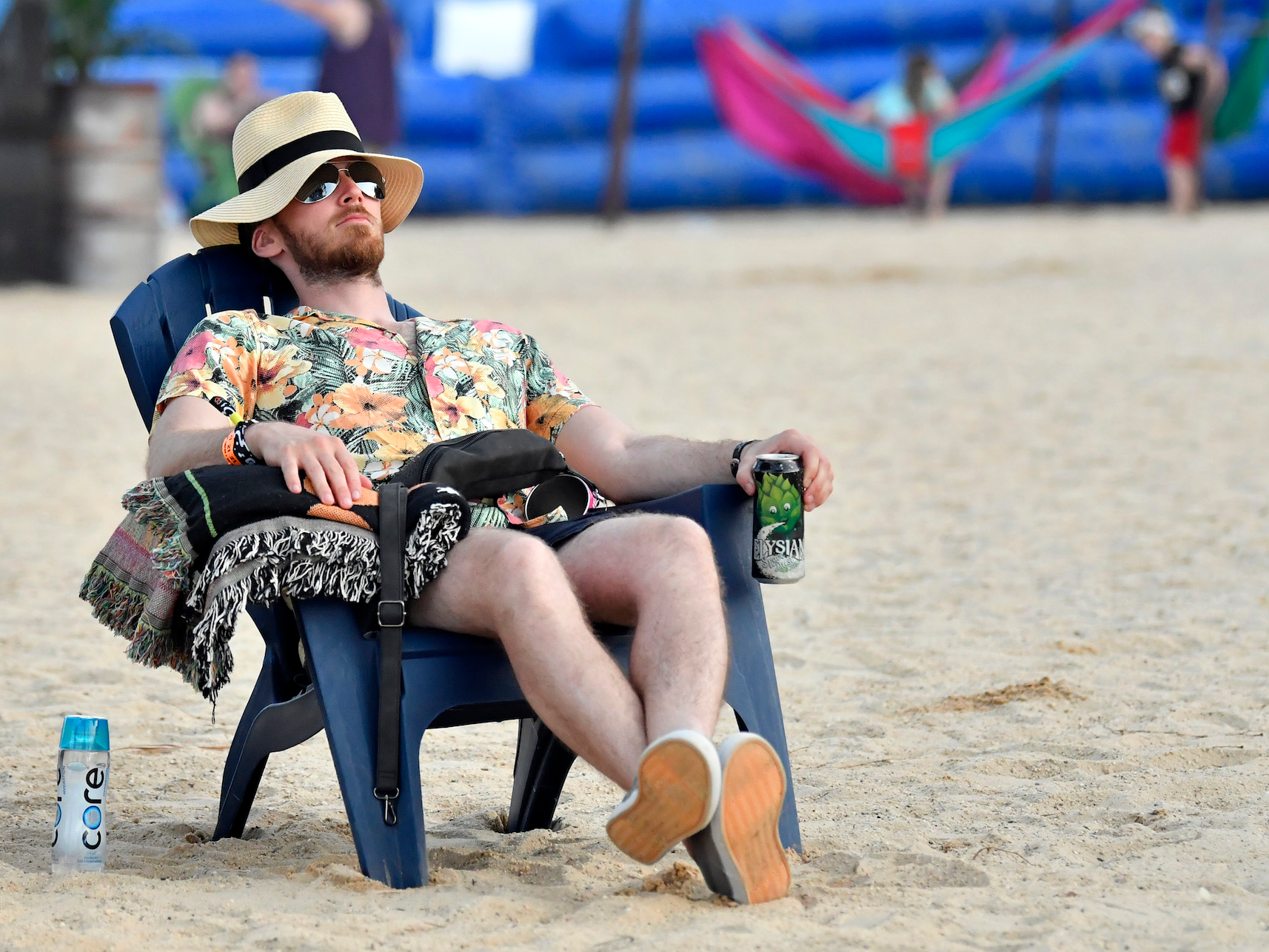- Nearly one in four working professionals feel burned out when their coworkers are on vacation, according to an exclusive survey from Business Insider and LinkedIn.
- 85% of the 1,000 working professionals surveyed report feeling burned out, with 16% of them suffering from burnout every day.
- Millennials in particular report higher rates of burnout than other generations surveyed. The trend could be due to social media.
- Visit Business Insider’s homepage for more stories.
Your coworkers aren’t enjoying your vacation time.
About 23% of working professionals feel burned out when their coworkers are on vacation, according to an exclusive survey conducted by Business Insider and LinkedIn.
The survey polled more than 1,000 working professionals ages 18 to 74 from across the US. The survey was not limited to just LinkedIn members.
One-quarter of respondents said they feel burned out when their colleagues are on vacation, and one-third said they feel burned out directly before taking a vacation.
Read more: How to ask your boss for vacation days before summer starts
The vast majority of respondents feel overworked and burned out, with millennials reporting the highest rates of both: 90% reported feeling burned out, compared to 85% of Gen X respondents and 80% of baby boomers.
What's worse, many workers aren't going on enough vacation to make up for that burnout. A separate LinkedIn study found nearly half of employees who get paid time off don't use all of their days - and 59% of them are actively on work email while away.
Millennials are the "burnout generation"
The World Health Organization recently classified burnout as a clinical syndrome brought on by chronic workplace stress. The trend has increased among US employees, as they report working unmanageable hours and not getting adequate support from managers, according to a 2018 Gallup survey.
Wages, meanwhile, are stagnant as cost of living has increased in many cities. Higher-paying jobs in tech and medicine have documented cultures of overworking employees, while many low-wage workers cannot afford to work just one job, and can end up working two or three to afford rent.
Millennials have reported they suffer from higher rates of burnout than other generations, a phenomenon that coined the term the "burnout generation." Older millennials that graduated around the time of the Great Recession faced a tough job market and likely set them back from getting high-paying jobs, having children, and buying a home.
Younger millennials, meanwhile, found work during the economic recovery, yet face a higher cost of living coupled with holding a record amount of student loan debt.
Burnout could be tied to the 47% increase in depression diagnosis among millennials since 2013, according to a Blue Cross Blue Shield report - yet many of them don't seek help due to financial constraints.
Social media heightens burnout among millennials
Economic hardships and high-pressure work environments aren't the only factors fueling burnout among millennials. Social media is also exacerbating the trend, reported Anne Helen Peterson for BuzzFeed in an in-depth analysis of burnout among millennials.
Social media content portrays versions of the lives millennials were taught to aim for but will never achieve. "I find that millennials are far less jealous of objects or belongings on social media than the holistic experiences represented there, the sort of thing that prompts people to comment, I want your life," Peterson wrote.
Consider Instagram influencers - they carefully curate versions of themselves as carefree and successful, but it's really just a highlight reel. No one sees what goes on behind the screen. Regardless, these media depictions add to millennials' dread about not doing enough, Business Insider's Julia Naftulin wrote.
Scrolling through Instagram and seeing your coworker vacationing in the Caribbean while you're taking on their workload probably doesn't help matters either.
